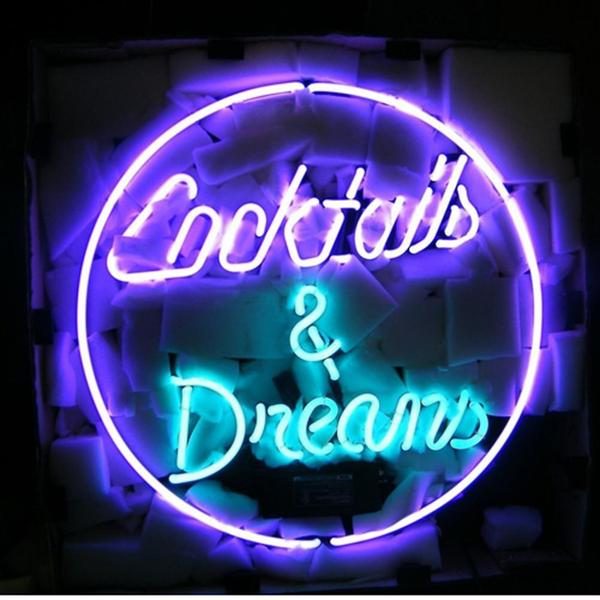When alcohol ruins your special event, it is seldom a happy memory creating circumstance. Actually, people getting drunk and abusing their friends, love interests, and family members at holiday parties is the most reported cause of Holiday PTSD for more than one nation’s worth of family units.
People who drink can be a real menace. But the Dry Drunks are even worse as they age. Put them in a home for the holidays or special event type of memorial or annual celebration, you have all the makings of family fights that are epic for inducing Holiday PTSD and various forms of personal and social duress.
They might not drink but they still think, feel, and process emotion from the vantage point of someone emotionally gluttonous and prone to low EQ decisions.
You know who and exactly what they are — the people on so many pharmaceuticals now that they are past their prime physically that their meds don’t play well when they start slamming cocktails. The folks who are not allowed to drink “because their doctor says”… who never did any of the psychological or emotional work necessary to stop thinking, feeling, and acting like a functional drunk hiding their emotional hedonistic neural processing deficits.
Listen to them yammer on and on about all the reasons why other people are living their lives in an improper way. Take in their mindful choice of behavior.
Listen to them bait and provoke — then pretend they are the victim of some bully’s joke. They cause other people to meltdown they pretend they are harmed by that person or peer group’s social or physical reaction.
Realizing drunk people are who they are — and that all alcoholic or problem drinking (or drug user) personality types are on the Cluster B scale is 99% of the intellectual battle figuring out why their neurological processing units seem to lack conscience and to socially fail.
It’s not like we have not known about this stuff medically and socially since at least the early 1970s.
The term dry drunk syndrome was originally coined by the creators of the 12-Step program, Alcoholics Anonymous. Author R.J. Solberg defined the term in his 1970 book, The Dry Drunk Syndrome, as “the presence of actions and attitudes that characterized the alcoholic prior to recovery.”
Mix a handful of people in a room together who used to be heavy, daily, or problem binge drinkers with a group of people on Tylenol based pharmaceuticals that reduce Empathy provably and medically (readily evidenced on a brain scan), add a handful of current drinkers and watch the fireworks.
Predictably, the people who cannot drink due to medication complications that make them feel unwell physically if they mix their beer, wine, or cocktails with things like their heart medications, blood pressure meds, pain pills, or whatever antibiotic it will ruin if they drink while they are on it and see how their brains respond to various levels of social stimuli.
One member of the family will have a temper problem that everyone else gets angry is constantly made into an issue everyone else is supposed to walk on eggshells to control.
Two or more members of the family will enjoy baiting, provoking, and or taunting others.
Someone will sit and play the martyr — always someone who sets other people up for social failure by acting unpleasable then letting everyone know how unhappy they are with how their needs were or were not attempted to be met.
Expect someone to cry and not understand why everyone is so mean in the family and irrational. That person NEVER says anything bad to or about anyone but they are gaslight into believing something is socially and intellectually wrong with them for being kind and socially collaborative by nature instead of competitive.
The person who cracks first and cries as the family increases in the insults as the hours go by is the person who will be mocked most and ridiculed.
The person leading the mocking has the lowest IQ of the pack of bullies but the highest level of Machiavellian intent to cause harm to others so they can feel powerful and like they are somehow impressive.
Expect this same person to be the most selfish and to say things loudly and rudely like it’s their right to drink because it’s their life and their body… while they sit and verbally, socially, and physically force their toxic behavior on everybody in such a way sober people end up with PTSD while they pretend whatever they did, failed to do when they should have, or that whatever hateful or chaos manufacturing thing they blurted for no other reason than to prove they could does not matter because they either A) “didn’t mean it” or B ) “don’t remember it”.
Expect their Enablers to profoundly defend them.
Expect other Cluster B people who are weaker than that person socially or physically to really try to grind you down to impress the predator who wounded you in the most original fashion or in the previous moments.
When the most ASPD person in the house bellows, expect their harem of pledges and Sycophants to circle the wagons and to defend them if they harm someone who seeks social and emotional support to get over whatever harm that person’s words or anti-social and trauma-inducing behavior caused.
The drunks — avoid. But don’t retreat to a kitchen full of Dry Drunks or Covert Cluster B partygoers.
Psychology Today shared a handy list of red flags to tell whether or not a person’s thinking — dry especially — is still being compromised by alcoholic belief systems related to social behaviors like egocentrism and entitlement. They suggest keeping your eyes open and to avoid people who show the following signs of toxic and boozer influenced belief systems.
During the party strive to avoid anyone who shows a forensic psychology history of one or any combination of the following Cluster B thinker’s poker tells:
- Resentment toward friends or family
- Anger and negativity surrounding recovery
- Depression, anxiety, and fear of relapse *
- Jealousy of friends who are not struggling with addiction
- Romanticizing their drinking days
- Being self-obsessed
- Replacing the addiction with a new vice (e.g., sex, food, and internet use)
People who harbor secret resentments but tell you everything is fine are prone to undermining, backstabbing, and lying to your face and behind your back without conscience.
Angry people have neurological issues related to overt or covert or FORMING ASPD.
Negative people spew toxic energy that impacts everyone’s neurobiology.
People who are depressed* are not likely to strive to harm others, but those who are prone to acting unpleasable to suck other people down into their misery or to con them into paying longer attention to them while trying to meet their needs are manipulative as well as socially disingenuous.
Jealousy is never an Empath issue. It just isn’t a defect of people who are born genetically prone to collaborating — especially not in those who abhor socially competitive environments.
Only miserable people — not people who are miserable — want to bring others down.
If you want to know how recovered a Dry Drunk is, listen to them talk about war stories related to partying.
Watch their microexpressions, facial animations, body posture, eye movements, and word choice when describing their past behavior. It takes about 12 seconds to figure out if they still glorify anti-social, self-harming, or psychopathic behavior or if they show emotional and social comprehension of how much harm drinking alcohol does by extension to everyone.
Ask yourself why — if problem drinking for any of the guests might be an issue — that a party host would choose to serve alcohol or to allow guests to bring their own and to consume on-premises.
Ask yourself who at the party lets guests who had more than one beer, a glass of wine, or a cocktail in the past two hours to drive.
Ask yourself who hands a person a glass of liquor knowing that person is on the wagon or struggling. Who drinks right in front of someone trying to get clean expecting their boozing to have no personal impact on the person who is struggling looking for support staying clean?
Whoever drinks with or in front of an alcoholic at a personal event where such behavior is unnecessary is behaving in ways that are socially passive-aggressive.
I love you enough not to drink in front of you is the right social answer for someone with a problem drinker in the family trying to get sober.
I care about you and everyone on the road enough not to let you drive home drunk is the proper party hosting and civil society respecting behavior.
I value spending time with you sober more than getting drunk is the right choice of any love interest, family member, or parent.
I choose to show you love and respect and to value things like your need for social and emotional support, a safe place to be, and to care for things like your comfort and emotions.
Not someone making up or pretending they are not happy with something to make me come do something over so they can waste my time and my energy.
Like people who wreck a party then say something like, “Well what did you expect — you should never have invited me to your party to begin with.”
Those people are jerks and brain scans can prove it.
It’s the 21st century. If you or a family member is struggling with alcohol use or abuse issues causing social problems, do this after the annual disaster event.
Encourage EVERYONE in the family to have their brain scan for empathy done, to get off any Tylenol based product (to restore emotional processing ability), and to have their DNA tested at a site like 23andme.com to submit to Promethease.com.
Questions like “Did I inherit addictive genes?” can be answered along with that pesky question as to whether or not drinking a glass of red wine every day or a shot of liquor is good for individuals. Not everyone in the family is likely to inherit the same traits… so red wine might work for Grandma to clear her arteries and to keep her heart healthy but not for Uncle John.
Uncle John might get surly and mean when he drinks and punches or verbally assaults his relatives or love interest behind closed doors that night once he and Aunt Whoever goes home.
And that Bill guy — one or two beers he’s fine but three or more and he’s grabbing the little girls inappropriately while trying to make little secrets between him and them that they are not supposed to tell anyone (especially siblings and parents).
Or that Bad Grandpa drinks a beer and because of his other pharmaceuticals commingling poorly with the alcohol, he acts as if he’s been to the bar and had 12.
Or that Grandma with her teacup dosed might get giddy for the first hour but then the wicked tongue comes out after the children are in the other room playing and everyone is trying to clean up after the party.
Or that Dad’s temper — one under the best of social stimulus around kids or a spouse he seldom tries to control — goes from barely suppressible to him flopping around the room resembling a giant cackling, weaving, and bobbing Jack in the Box tempting anyone who comes near him not to recoil in horror.
And if Mommy Dearest is a drinker?
Lordy…
Then the entire family unit becomes a hostage crisis. If you are emotionally intelligent — meaning sensitive and able to process complex emotions regardless of how much emotional literacy you have — avoid interacting with those types of people as much as possible for the sake of your own NLP and your health.
Make yourself busy the next holiday season. Avoid any get together with drinkers or with Cluster B people whenever possible if and when you are ready to learn how to socialize in a room full of people who are not neurologically limited by frozen neuroplasticity.





